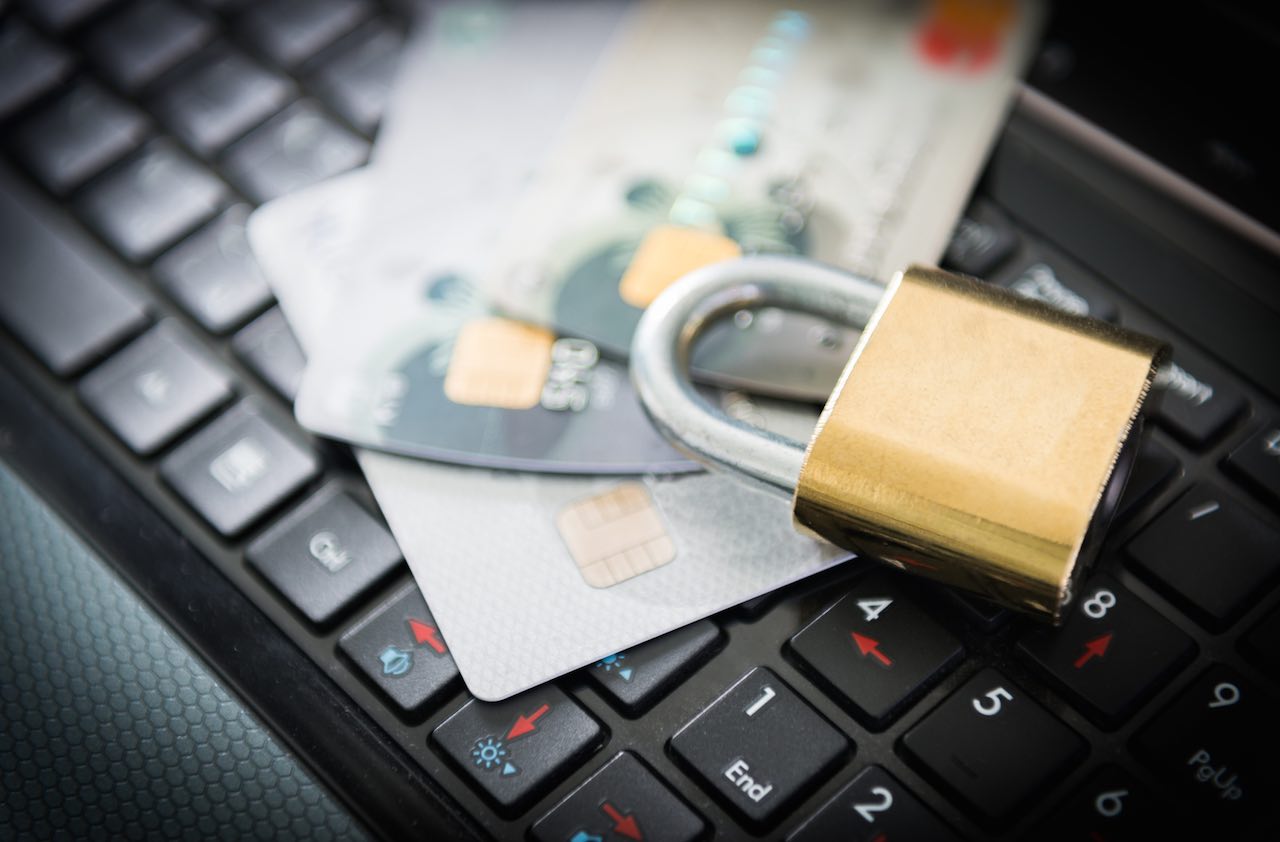How I Quickly Resolved My Case of Identity Theft
It was one of my biggest fears. But once it ended up happening, it was actually manageable.


Profit and prosper with the best of Kiplinger's advice on investing, taxes, retirement, personal finance and much more. Delivered daily. Enter your email in the box and click Sign Me Up.
You are now subscribed
Your newsletter sign-up was successful
Want to add more newsletters?

Delivered daily
Kiplinger Today
Profit and prosper with the best of Kiplinger's advice on investing, taxes, retirement, personal finance and much more delivered daily. Smart money moves start here.

Sent five days a week
Kiplinger A Step Ahead
Get practical help to make better financial decisions in your everyday life, from spending to savings on top deals.

Delivered daily
Kiplinger Closing Bell
Get today's biggest financial and investing headlines delivered to your inbox every day the U.S. stock market is open.

Sent twice a week
Kiplinger Adviser Intel
Financial pros across the country share best practices and fresh tactics to preserve and grow your wealth.

Delivered weekly
Kiplinger Tax Tips
Trim your federal and state tax bills with practical tax-planning and tax-cutting strategies.

Sent twice a week
Kiplinger Retirement Tips
Your twice-a-week guide to planning and enjoying a financially secure and richly rewarding retirement

Sent bimonthly.
Kiplinger Adviser Angle
Insights for advisers, wealth managers and other financial professionals.

Sent twice a week
Kiplinger Investing Weekly
Your twice-a-week roundup of promising stocks, funds, companies and industries you should consider, ones you should avoid, and why.

Sent weekly for six weeks
Kiplinger Invest for Retirement
Your step-by-step six-part series on how to invest for retirement, from devising a successful strategy to exactly which investments to choose.
Few things have haunted me as much as the fear of having my identity stolen. What a nightmare it would be, my credit in shambles and the prospect of spending countless hours to restore my good name. To quell the anxiety, I’ve paid for various credit-monitoring services over the years.
And then this spring it happened: I received an alert about a suspicious credit inquiry. My Social Security number had been used to open a new PayPal credit account in my name. Cue the panic attack...
However, as with most things in life, the anxiety turned out to be worse than the reality. Because I caught the fraud so quickly – within hours of the PayPal account being opened – I was able to minimize the damage. No charges were made to the fake account, and no other accounts were opened with my information.
From just $107.88 $24.99 for Kiplinger Personal Finance
Become a smarter, better informed investor. Subscribe from just $107.88 $24.99, plus get up to 4 Special Issues

Sign up for Kiplinger’s Free Newsletters
Profit and prosper with the best of expert advice on investing, taxes, retirement, personal finance and more - straight to your e-mail.
Profit and prosper with the best of expert advice - straight to your e-mail.
Here’s what I did to successfully shut down the identity thieves -- including a few new tactics I learned along the way:
It all started with Equifax credit monitoring (cost: about $12 per month through my bank), which alerted me to the bogus credit inquiry from PayPal. As I hadn’t applied for any lines of credit, I knew I needed to take action.
I called PayPal right away and explained to a representative that I did not open the new account. She froze it and launched an internal investigation.
I then contacted Equifax to place a 90-day initial fraud alert on my record. This alert is free on request, and once you’ve placed it with one credit bureau, the alert is automatically placed with the other two credit agencies. For at least 90 days, my credit was safe.
[Insert a sigh of relief here.]
As I awaited PayPal’s internal investigation, I also took the time to create an account with the FTC so that I would have a record of the incident. Documentation is necessary if you want to take advantage of a free credit freeze for fraud victims (more on this in a moment). I give big props to the FTC for a helpful website and charming phone service agents. I also submitted a police report online for further documentation.
What the Experts Say
I reached out to a couple of experts to see if I had responded appropriately: Michael Bruemmer, vice-president for consumer protection at Experian, and credit expert John Ulzheimer, formerly of FICO and Equifax. Both agreed that I get an A, because most consumers would have disputed the issue with PayPal and stopped there. Bruemmer also gave me points for monitoring my accounts so proactively, which is one of his key steps to identity protection, along with shredding prescreened offers and personal documents you no longer need.
After a few weeks, I received written confirmation from PayPal that the fraudulent account would be closed.
To prevent future credit breaches, I next had to choose between establishing an extended fraud alert or freezing my credit completely. With an extended fraud alert, which lasts seven years, creditors can still access your report as long as they first take steps to verify your identity. A credit freeze means your credit report can’t be accessed unless you specifically grant permission.
“The credit freeze is the Fort Knox of credit protection,” says Ulzheimer. Although you need to unfreeze your account each time you apply to open a new account—say, with a home utility or cell-phone provider--or anytime you apply for credit, “the ability to decide when someone can access your credit report is a really empowering thing for a consumer.” And you don’t have to have your identity stolen to do it. Just be aware of your state’s laws regarding credit-freeze costs and requirements.
I opted for the credit freeze. Because I was the victim of fraud and had a police report, I was entitled to place the freeze free if I sent my documentation via certified mail. Unlike the initial fraud alert, which carried over automatically to all three credit bureaus, I had to request a separate freeze at each bureau. (Note: In my state, anybody can freeze their credit online for a $10 fee. And because the cost to send my documentation by certified mail would have exceeded $10, I, too, chose to pay the fee to freeze my credit online.)
Sure, the credit freeze will ultimately require more judiciousness on my part whenever I apply for credit in the future. (Note to self: Do not forget your PIN numbers.) But it’s completely worth it for the peace of mind. There are plenty of things to be anxious about. I don’t want identity theft to be one of them.
Profit and prosper with the best of Kiplinger's advice on investing, taxes, retirement, personal finance and much more. Delivered daily. Enter your email in the box and click Sign Me Up.

-
 Dow Adds 1,206 Points to Top 50,000: Stock Market Today
Dow Adds 1,206 Points to Top 50,000: Stock Market TodayThe S&P 500 and Nasdaq also had strong finishes to a volatile week, with beaten-down tech stocks outperforming.
-
 Ask the Tax Editor: Federal Income Tax Deductions
Ask the Tax Editor: Federal Income Tax DeductionsAsk the Editor In this week's Ask the Editor Q&A, Joy Taylor answers questions on federal income tax deductions
-
 States With No-Fault Car Insurance Laws (and How No-Fault Car Insurance Works)
States With No-Fault Car Insurance Laws (and How No-Fault Car Insurance Works)A breakdown of the confusing rules around no-fault car insurance in every state where it exists.
-
 Money for Your Kids? Three Ways Trump's ‘Big Beautiful Bill’ Impacts Your Child's Finances
Money for Your Kids? Three Ways Trump's ‘Big Beautiful Bill’ Impacts Your Child's FinancesTax Tips The Trump tax bill could help your child with future education and homebuying costs. Here’s how.
-
 Key 2025 Tax Changes for Parents in Trump's Megabill
Key 2025 Tax Changes for Parents in Trump's MegabillTax Changes Are you a parent? The so-called ‘One Big Beautiful Bill’ (OBBB) impacts several key tax incentives that can affect your family this year and beyond.
-
 What Does Medicare Not Cover? Eight Things You Should Know
What Does Medicare Not Cover? Eight Things You Should KnowMedicare Part A and Part B leave gaps in your healthcare coverage. But Medicare Advantage has problems, too.
-
 QCD Limit, Rules and How to Lower Your 2026 Taxable Income
QCD Limit, Rules and How to Lower Your 2026 Taxable IncomeTax Breaks A QCD can reduce your tax bill in retirement while meeting charitable giving goals. Here’s how.
-
 Five Ways to Save on Vacation Rental Properties
Five Ways to Save on Vacation Rental PropertiesTravel Use these strategies to pay less for an apartment, condo or house when you travel.
-
 How to Avoid Annoying Hotel Fees: Per Person, Parking and More
How to Avoid Annoying Hotel Fees: Per Person, Parking and MoreTravel Here's how to avoid extra charges and make sure you don't get stuck paying for amenities that you don't use.
-
 How to Benefit From Rising Interest Rates
How to Benefit From Rising Interest RatesFinancial Planning Savers will get the best rates from top-yielding savings and money market deposit accounts at online banks.
-
 Etsy, eBay, PayPal Want IRS 1099-K Relief for Online Sellers
Etsy, eBay, PayPal Want IRS 1099-K Relief for Online SellersIncome Tax Companies like eBay, Etsy, and PayPal want Congress to raise the $600 reporting threshold for IRS Form 1099-K to give relief to millions of sellers who use their sites.